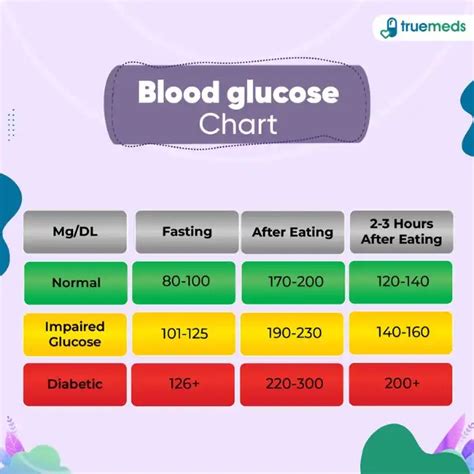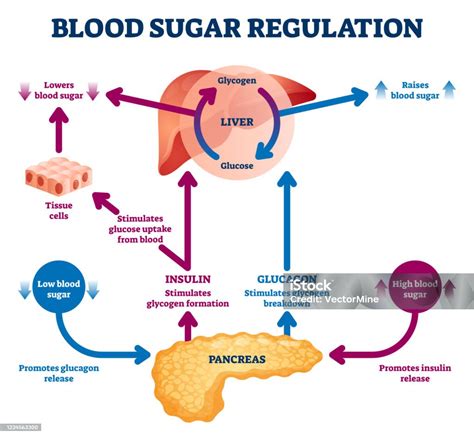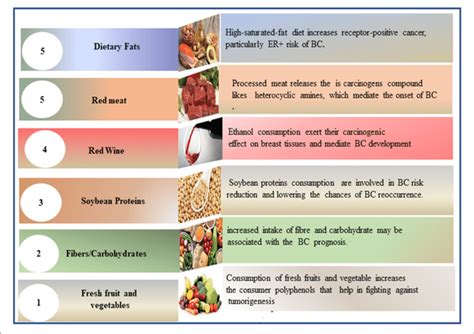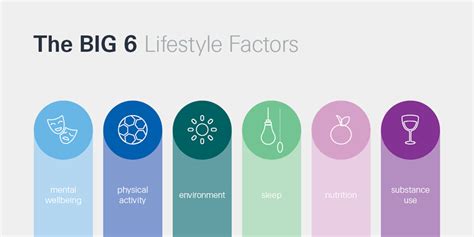Intro
Discover normal sugar levels, including 5 key ranges, and learn about blood glucose monitoring, diabetes management, and healthy targets to maintain optimal sugar control and prevent complications.
Normal sugar levels are a crucial aspect of maintaining overall health and well-being. The human body relies on glucose, a type of sugar, as its primary source of energy. However, excessive glucose levels can lead to various health issues, including diabetes, heart disease, and stroke. Understanding normal sugar levels and how to manage them is essential for preventing these conditions and ensuring optimal health.
The importance of normal sugar levels cannot be overstated. When glucose levels are within a healthy range, the body can function properly, and the risk of developing chronic diseases is significantly reduced. On the other hand, abnormal sugar levels can lead to a range of complications, from mild symptoms like fatigue and blurred vision to severe conditions like kidney damage and nerve damage. By understanding what constitutes normal sugar levels and how to maintain them, individuals can take proactive steps to protect their health and well-being.
In recent years, there has been a growing awareness of the importance of sugar level management, driven in part by the increasing prevalence of diabetes and other sugar-related health issues. As a result, many people are seeking information on how to maintain normal sugar levels, including the role of diet, exercise, and lifestyle factors. This article aims to provide a comprehensive overview of normal sugar levels, including the benefits of maintaining healthy glucose levels, the working mechanisms of glucose regulation, and practical tips for managing sugar levels.
Understanding Normal Sugar Levels

Normal sugar levels refer to the range of glucose levels in the blood that are considered healthy and optimal for the body's functioning. The normal range for blood glucose levels is typically between 70 and 140 milligrams per deciliter (mg/dL). However, this range can vary slightly depending on factors like age, fitness level, and medical conditions. For example, people with diabetes may have a slightly higher normal range due to their bodies' reduced ability to regulate glucose levels.
The body's glucose regulation system is complex and involves multiple organs and hormones. The pancreas plays a central role in glucose regulation by producing insulin, a hormone that helps cells absorb glucose from the bloodstream. When glucose levels rise after a meal, the pancreas releases insulin to facilitate glucose uptake by cells. Conversely, when glucose levels drop, the pancreas releases glucagon, a hormone that stimulates the liver to release stored glucose into the bloodstream.
Benefits of Maintaining Normal Sugar Levels
Maintaining normal sugar levels has numerous benefits for overall health and well-being. Some of the key advantages include:- Reduced risk of chronic diseases like diabetes, heart disease, and stroke
- Improved energy levels and cognitive function
- Enhanced athletic performance and endurance
- Healthier skin, hair, and nails
- Reduced inflammation and oxidative stress
The Working Mechanisms of Glucose Regulation

The working mechanisms of glucose regulation involve a complex interplay between multiple organs and hormones. The pancreas, liver, and kidneys play key roles in glucose regulation, along with hormones like insulin, glucagon, and epinephrine. When glucose levels rise after a meal, the pancreas releases insulin to facilitate glucose uptake by cells. Insulin binds to insulin receptors on cell surfaces, triggering a signaling cascade that ultimately leads to glucose uptake and storage.
Conversely, when glucose levels drop, the pancreas releases glucagon to stimulate the liver to release stored glucose into the bloodstream. Glucagon binds to glucagon receptors on liver cells, triggering a signaling cascade that ultimately leads to glucose release and increased glucose production. The kidneys also play a critical role in glucose regulation by filtering glucose from the bloodstream and reabsorbing it back into the body when glucose levels are low.
Steps to Maintain Normal Sugar Levels
Maintaining normal sugar levels requires a combination of dietary, lifestyle, and medical interventions. Some of the key steps include:- Eating a balanced diet that is low in added sugars and refined carbohydrates
- Engaging in regular physical activity, such as walking or jogging
- Getting enough sleep and managing stress levels
- Monitoring blood glucose levels regularly and adjusting diet and lifestyle accordingly
- Taking medications or supplements as prescribed by a healthcare provider
Dietary Factors Affecting Sugar Levels

Dietary factors play a significant role in maintaining normal sugar levels. Foods that are high in added sugars and refined carbohydrates can cause glucose levels to spike, while foods that are high in fiber, protein, and healthy fats can help regulate glucose levels. Some of the key dietary factors to consider include:
- Glycemic index: Foods with a high glycemic index, such as white bread and sugary snacks, can cause glucose levels to spike rapidly.
- Fiber intake: Foods high in fiber, such as fruits, vegetables, and whole grains, can help slow down glucose absorption and regulate glucose levels.
- Protein intake: Foods high in protein, such as lean meats and legumes, can help regulate glucose levels and improve insulin sensitivity.
- Healthy fats: Foods high in healthy fats, such as nuts and avocados, can help regulate glucose levels and improve overall health.
Practical Tips for Managing Sugar Levels
Managing sugar levels requires a combination of dietary, lifestyle, and medical interventions. Some of the key practical tips include:- Drinking plenty of water to stay hydrated and help regulate glucose levels
- Eating regular meals to prevent glucose spikes and dips
- Avoiding sugary drinks and snacks that can cause glucose levels to spike
- Getting enough physical activity to improve insulin sensitivity and glucose regulation
- Monitoring blood glucose levels regularly and adjusting diet and lifestyle accordingly
Lifestyle Factors Affecting Sugar Levels

Lifestyle factors play a significant role in maintaining normal sugar levels. Factors such as stress, sleep, and physical activity can all impact glucose regulation and overall health. Some of the key lifestyle factors to consider include:
- Stress levels: Chronic stress can raise glucose levels and worsen insulin resistance.
- Sleep quality: Poor sleep quality can disrupt glucose regulation and worsen insulin resistance.
- Physical activity: Regular physical activity can improve insulin sensitivity and glucose regulation.
- Smoking and tobacco use: Smoking and tobacco use can worsen insulin resistance and increase the risk of chronic diseases.
Managing Stress and Sleep for Healthy Sugar Levels
Managing stress and sleep is crucial for maintaining healthy sugar levels. Some of the key strategies include:- Practicing stress-reducing techniques, such as meditation and yoga
- Getting enough sleep each night, aiming for 7-9 hours
- Establishing a consistent sleep schedule and bedtime routine
- Avoiding caffeine and electronics before bedtime
- Engaging in regular physical activity to improve sleep quality and reduce stress
Medical Interventions for Managing Sugar Levels

Medical interventions play a crucial role in managing sugar levels, particularly for individuals with diabetes or prediabetes. Some of the key medical interventions include:
- Medications: Oral medications and injectables can help regulate glucose levels and improve insulin sensitivity.
- Insulin therapy: Insulin injections can help regulate glucose levels and improve insulin sensitivity.
- Continuous glucose monitoring: Continuous glucose monitoring systems can help individuals track their glucose levels and make informed decisions about diet and lifestyle.
Working with a Healthcare Provider
Working with a healthcare provider is essential for managing sugar levels and preventing chronic diseases. Some of the key considerations include:- Finding a healthcare provider who is knowledgeable about sugar level management and diabetes care
- Working with a registered dietitian or nutritionist to develop a personalized meal plan
- Monitoring blood glucose levels regularly and adjusting diet and lifestyle accordingly
- Staying up-to-date with the latest research and guidelines on sugar level management and diabetes care
What are normal sugar levels?
+Normal sugar levels refer to the range of glucose levels in the blood that are considered healthy and optimal for the body's functioning, typically between 70 and 140 milligrams per deciliter (mg/dL).
How can I maintain normal sugar levels?
+Maintaining normal sugar levels requires a combination of dietary, lifestyle, and medical interventions, including eating a balanced diet, engaging in regular physical activity, getting enough sleep, and monitoring blood glucose levels regularly.
What are the benefits of maintaining normal sugar levels?
+Maintaining normal sugar levels has numerous benefits, including reduced risk of chronic diseases like diabetes, heart disease, and stroke, improved energy levels and cognitive function, and enhanced athletic performance and endurance.
In conclusion, maintaining normal sugar levels is crucial for overall health and well-being. By understanding the benefits of normal sugar levels, the working mechanisms of glucose regulation, and practical tips for managing sugar levels, individuals can take proactive steps to protect their health and prevent chronic diseases. We invite readers to share their thoughts and experiences on managing sugar levels and to take action by incorporating healthy habits into their daily lives. Share this article with friends and family to help spread awareness about the importance of sugar level management, and let's work together to create a healthier and happier community.
